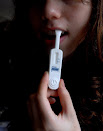UC-Hastings law professor Joan Williams writes in today's NY Times ("The Case for Accepting Defeat on Roe," 9/29/2020) one of the best summaries of where the current abortion jurisprudence stands in 2020 and argues that reproductive-rights advocates may fare better with state legislatures than they have in the courts:
It’s true that abortion access is already abysmal. . . . Nearly 60 percent [of women seeking abortions] have already had one child and nearly half live below the poverty level; some fear they’ll be fired if they take time off, particularly if they need to make two trips, as they must in the 26 states with mandatory waiting periods.
The argument that the left has already lost the abortion fight reflects the fact that there’s no abortion clinic in 90 percent of American counties. This is the result of the highly successful death-by-a-thousand-cuts anti-abortion strategy, which has piled on restriction after restriction to make abortion inaccessible to as many American women as possible.
Prof. Williams isn't ready to give up on the fight to preserve Roe, though every year it seems to protect less and less of a woman's right to choose. She cites Justice Ginsburg's critique of Roe as support for a legislative strategy going forward:
So what should we do now? Often forgotten is that R.B.G. herself had decided that Roe was a mistake. In 1992, she gave a lecture musing that the country might be better off if the Supreme Court had written a narrower decision and opened up a “dialogue” with state legislatures, which were trending “toward liberalization of abortion statutes” (to quote the Roe court). Roe “halted a political process that was moving in a reform direction and thereby, I believe, prolonged divisiveness and deferred stable settlement of the issue,” Justice Ginsburg argued. In the process, “a well-organized and vocal right-to-life movement rallied and succeeded, for a considerable time, in turning the legislative tide in the opposite direction.”
There's more to read and learn from Prof. Williams's insightful op-ed. I recommend it.








